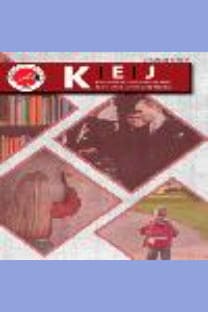Üstün Zekalı Olan ve Olmayan Öğrencilerin Başarı Odaklı Motivasyonlarının Belirlenmesi
Üstün Zekâ, Motivasyon, Üstün Zekalı ve Normal Öğrenci
Determining The Success-Oriented Motivations of Gifted and Non-Gifted Students
___
- Seah, W.T. ve Bishop, A.J. (2000). Values in mathematics textbooks: A wiew throught the australasian regions. Paper Presented at the Annual Meeting of the American Educational Research Association, LA: New Orleans.
- Thompson, T.L. ve Mintzes, J.J. (2002). Cognitive structure and the affective domain: On knowing and feeling in biology. International Journal of Science Education, 24(6), 645-660.
- Weaver, G.C., (1998). Strategies in K-12 science instruction to promote conceptual change. Science Education, 82(4), 455-472.
- Lee, O. ve Brophy, J. (1996). Motivational patterns observed in sixth-grade science classrooms. Journal of Research in Science Teaching, 33(3), 585-610.
- Morgan, C.T. (1984). Psikolojiye giriş ders kitabı (Çeviri), Ankara: Meteksan Yayınları. Öncül, R. (2000). Eğitim ve eğitim bilimleri sözlüğü. İstanbul: Milli Eğitim Basımevi.
- Schunk, D.H., (2009). Öğrenme teorileri: Eğitimsel bir bakışla (Çeviri Editörü: Dr. Muzaffer Şahin), 5. Baskıdan çeviri, Ankara: Nobel Yayınevi.
- Wigfield, A. ve Eccles, J.S. (2000). Expectancy-value theory of achievement motivation. Contemporary Educational Psychology, 25, 68-81.
- Açıkgöz, K. Ü. (2003). Etkili öğrenme ve öğretme. İzmir: Eğitim Dünyası Yayınları. Ülgen, G., (1994). Eğitim psikolojisi: Kavramlar, ilkeler, yöntemler, kuramlar ve uygulamala. Ankara: Lazer Ofser Matbaa.
- Senemoğlu, N. (2007). Gelişim, öğrenme ve öğretim: Kuramdan uygulamaya. Ankara: Gönül Matbaacılık.
- Fidan, N. (1985). Okulda öğrenme ve öğretme. Ankara: Alkım Kitapevi.
- Ulusoy, A. (2007). Güdülenme (Editör: Prof.Dr. Ayten Ulusoy, Eğitim psikolojisi kitabında bölüm), Ankara: Anı yayıncılık.
- Renzulli, J. S. (1998). The three-ring conception of giftedness. In S. M. Baum, S. M. Reis, & L. R. Maxfield (Eds.), Nurturing The Gifts And Talents Of Primary Grade Students (pp. 1-27). Mansfield Center, CT: Creative Learning Press
- Sak, U. (2013). Üstün Zekalılar Özellikleri, Tanılanmaları, Eğitimleri. Ankara, Vize Yayıncılık. Yavuzer, H. (1986). “Okul Başarısının Etkileyen Nedenler” Aile ve Çocuk 1982-1983 seminer Konuşmaları. İstanbul: Ak Yayınları, 1986.
- Karasar, N. (1995). Bilimsel araştırma yöntemi, Ankara: Alkım Kitapevi.
- Larson, L. M. Stephen, A. Bonitz, V.S. & Wu, . F. (2014). Predicting science achievement in India: role of gender, self-efficacy, interests, and effort. Journal of Career Assessment, 22(1), 89-101.
- ISSN: 1300-8811
- Yayın Aralığı: Yılda 4 Sayı
- Başlangıç: 1992
- Yayıncı: -
Sait AKBAŞLI, Lütfi ÜREDİ, Hüseyin YOLCU, Pelin KÖSECE LOĞOĞLU
Sosyal Bilgiler Ders Kitaplarında Bilim Adamları
Üniversite Öğrencilerinin Benlik Saygısı ve Yalnızlık Düzeylerinin İncelenmesi
Üstün Zekalı Olan ve Olmayan Öğrencilerin Başarı Odaklı Motivasyonlarının Belirlenmesi
Deniz ÖZCAN, Furkan Abdullah KAYA
Erasmus Öğrencilerinin Hareketlilik Öncelikleri: Bir Sıralama Ölçeği Çalışması
Eren Halil ÖZBERK, Nagihan BOZTUNÇ ÖZTÜRK, Leyla YILMAZ FINDIK, Suzan Beyza KAPTI
Türkiye’de Tarih Öğretiminin Yönelimi Üzerine Bir Değerlendirme
Üniversite Öğrencilerinin Siber Güvenlik Davranışlarının İncelenmesi
Abdulkadir KARACI, Halil İbrahim AKYÜZ, Göksel BİLGİCİ
Üniversite Birinci Sınıf Öğrencilerinİn Arkadaş Bağlılığının İncelenmesi
Gülşen ULAŞ KARAAHMETOĞLU, Havva KAÇAN SOFTA, Hicran KÖR, Gözde KARAGÖZOĞLU
